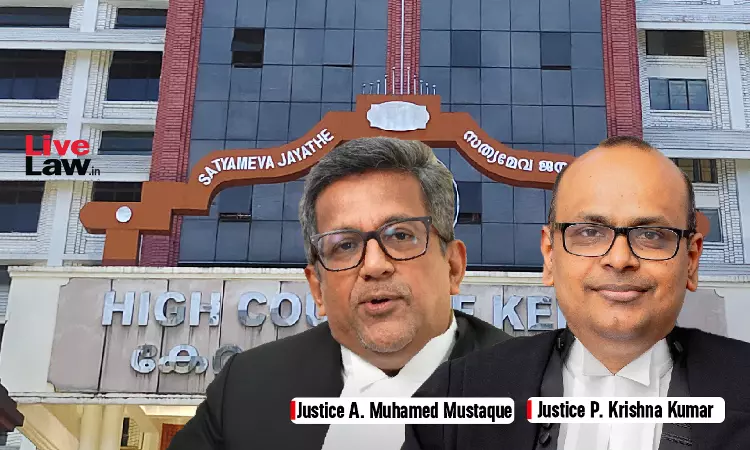- Home
- /
- High Courts
- /
- Kerala High Court
- /
- Clear Evaluation Criterion Known In...
Clear Evaluation Criterion Known In Advance By Aspirants Crucial To Maintaining Integrity Of Exams: Kerala HC Pulls Up PSC For Last-Minute Change
Tellmy Jolly
4 March 2025 3:57 PM IST
The Kerala High Court held that Public Service Commission (PSC) cannot arbitrarily prescribe minimum mark criteria for each compartment of a single examination, after the written examination is over without informing the candidates in advance.The Court was considering whether PSC was justified to prescribe minimum marks for each compartment of a single examination after the examination was...
The Kerala High Court held that Public Service Commission (PSC) cannot arbitrarily prescribe minimum mark criteria for each compartment of a single examination, after the written examination is over without informing the candidates in advance.
The Court was considering whether PSC was justified to prescribe minimum marks for each compartment of a single examination after the examination was over and disqualify candidates who failed to secure such minimum marks in each compartments.
The Division Bench of Justice A.Muhamed Mustaque and Justice P. Krishna Kumar observed that setting clear evaluation criteria in advance is essential since written exam plays a crucial role in assessing a candidate's eligibility.
“Candidates have the right to know the criteria for elimination and inclusion in an examination; if no criteria are mentioned, it has to be assumed that the candidates who scored the highest marks will have to be included in the merit list in accordance with the marks secured. Apparently in this case PSC or the evaluator could not make out any prescription of minimum marks while evaluating or tabulating marks. It is after complaints and litigations, that PSC woke up from the slumber to rectify their own mistake of not prescribing minimum or maximum marks for each compartment of the exam. The PSC cannot redo the exercise at the cost of the candidates. At best, PSC could have cancelled the examination in light of the serious flaw they detected subsequently. But, by the passage of time, it became irredeemable.”
In the facts of the case, PSC conducted exams for the post of Lower Division Clerk in Kasargode and Palakkad districts. It is to be noted that no minimum marks were referred in examination scheme or in question papers of the descriptive examination. After the descriptive examination, PSC decided to prescribe minimum marks for qualifying each subject of the single examination.
The Kerala Administrative Tribunal held that PSC prescribing minimum marks for each compartment of a single examination, after examination without informing candidates in advance as arbitrary.
PSC submitted before the Court that exams to the post of LDC consists of ascertaining proficiency of Malayalam language and specialised languages like Kannada, Tamil. It was submitted that if minimum marks were not prescribed, then PSC would not be able to ascertain knowledge in special subjects. It was stated that even in the notification issued by PSC, it was mentioned that candidates should possess working knowledge of Malayalam, Tamil or Kannada.
Relying upon Apex Court decisions, PSC argued that they cannot appoint candidates who are not eligible and PSC applied the correct selection process in the written exam to select eligible candidates.
On the other hand, candidates opposing arguments of PSC submitted PSC cannot make changes in evaluation criteria in the absence of prescription of marks in the notification or scheme of examination or in the question paper. It was also submitted that candidates have already been advised and appointed by the PSC should not cancel their advice within one year from the date of such advice.
The Court stated that PSC has the power for prescribing minimum marks for any compartmentalized examination. However, the Court stated that PSC has to fix minimum and maximum marks in each compartment in advance. Court said that the candidates should have certainty about the examination when competing to limited vacancies.Court added, “They should have certainty about the exam and the criteria adopted to assess them in such competition. It is the knowledge of the candidates as to the criteria of such a competitive exam that makes it competitive and not by any fortuitous circumstances.”
The Court stated that it was not discernible from assessing the question paper that the exam was conducted in a compartmentalized basis with minimum marks for clearing each compartment. Relying upon Apex Court decisions, the Court stated that PSC cannot prescribe criteria after the examination was over.
The Court thus stated that PSC could have cancelled the examination on detecting that they had not prescribed minimum marks for each compartment, instead of prescribing minimum marks after the exam was conducted.
The Court further elaborated on the importance of written examination to assess a candidate's eligibility. It stated that candidates prepare for exams based on pre-established patterns and PSC cannot arbitrarily disregard the expectations of students. The Court thus stated that PSC cannot arbitrarily make changes in exam after exam is over, especially now that candidates have already been issued with advice memos.
Court stated “Establishing clear evaluation criteria in advance is essential in maintaining the integrity of the examination process. Predefined standards also enhance candidates' confidence, as they are aware of the expectations set for them. The PSC must take this responsibility seriously.Each candidate prepares for the examination with the expectation that they will be evaluated according to the pre- established pattern. The PSC cannot arbitrarily disregard these expectations, especially after issuing an advice memo. Such lapses in the examination process are unacceptable. We trust that the PSC will take necessary measures to prevent such errors in the future."
As such, the Court dismissed the original petitions.
Case Title: Ibrahim Sherif K V Malathi B P and connected cases
Case No: O.P.(KAT).Nos.553/2023 and connected cases
Citation: 2025 LiveLaw (Ker) 153



